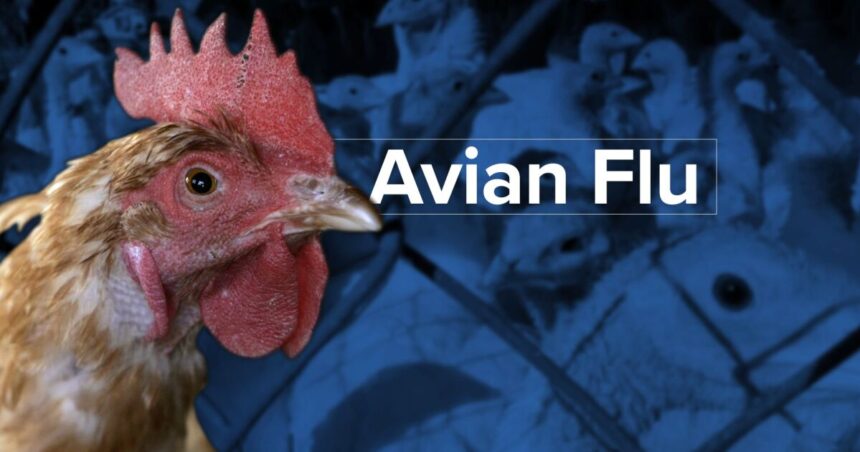GREAT FALLS — Poultry farmers across the nation are facing challenges due to the effects of Highly Pathogenic Avian Influenza (HPAI).
“We are two years into a national outbreak with highly pathogenic avian influenza,” explained Montana State Veterinarian Dr. Tahnee Szymanski.
Dr. Szymanski told MTN there have been approximately two dozen HPAI detections across the state of Montana, impacting about 175,000 birds.
While this number seems significant, it is relatively small compared to infections in flocks nationwide.
At the start of April, the Centers for Disease Control and Prevention (CDC) issued a public health alert after a Texas farm worker tested positive for HPAI.
Prior to this announcement, Cal-Maine Foods, the largest producer of shell eggs in the country, revealed plans to cull 1.6 million laying hens and nearly 350,000 young hens, which amounts to almost 4% of its total flock.
Animal and Range Science Extension Specialist at Montana State University Thomas Bass noted that Montana is less vulnerable compared to regions with dense egg and turkey production, like the Midwest.
Despite the lower vulnerability in Montana due to vast open spaces, livestock can still be at risk if in close contact with infected birds or humans.
Should an animal or group of livestock become infected, farmers and ranchers would be advised to take precautions such as reducing contact with others, not sharing equipment, and limiting visitors until the illness subsides.
As the concern over “Bird Flu” persists and significant bird culls continue in the U.S., the possibility of a vaccination for poultry is being considered.
“On that large scale of domestic poultry, we have not made that decision. I know that now that we have the detection in cattle, that conversation, I think, is very much being revisited. Is it time for us to go that route,” said Dr. Szymanski.
Both Bass and Szymanski explained that a vaccination would likely be in the form of dry food for poultry flocks, as individual flock sizes can vary making injections challenging. With the spread of illness among species and humans, the topic of vaccination is gaining importance.
As the avian flu continues to pose a threat across the country, Dr. Szymanski reassures consumers that poultry and dairy products in grocery stores are safe for consumption.
The egg crisis of 2022 raises concerns about potential price increases for eggs with HPAI spreading in the United States. Marketplace.org reports that during the 2023 outbreak, the price of Grade A eggs rose to over $4.80 per dozen, more than double the cost compared to the previous year.
Factors such as inflation and avian flu were found to contribute to an increase in retail egg prices during the 2022 outbreak, according to a report from the University of Arkansas.
Experts suggest that the industry could manage supplies to consumers by retaining fewer eggs for a temporary period as the avian flu situation unfolds.





